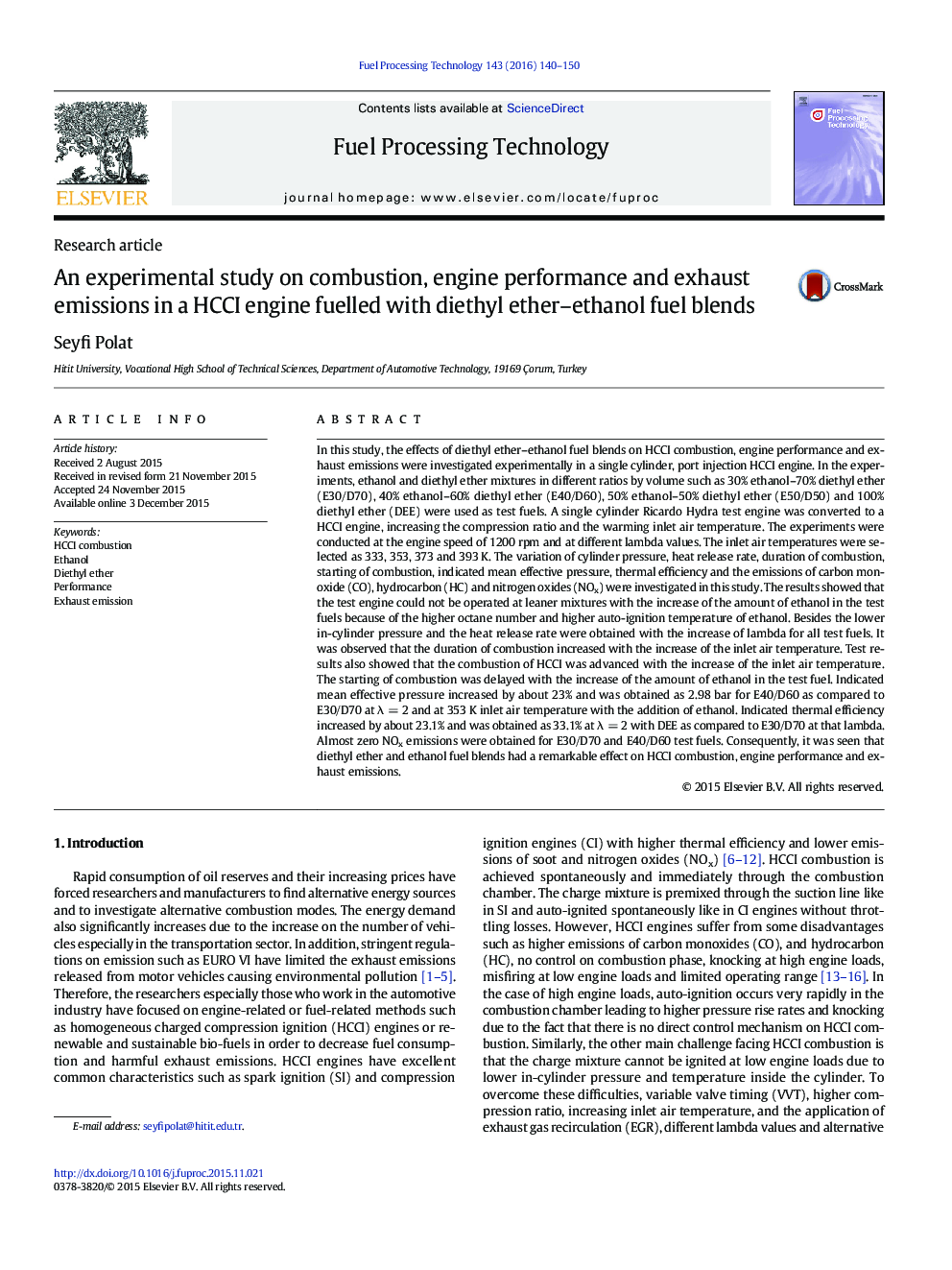| کد مقاله | کد نشریه | سال انتشار | مقاله انگلیسی | نسخه تمام متن |
|---|---|---|---|---|
| 209208 | 461660 | 2016 | 11 صفحه PDF | دانلود رایگان |

• The effects of DEE–ethanol fuel blends were investigated in a HCCI engine.
• The addition of ethanol to DEE was decreased knocking tendency at high loads.
• DEE has better auto-ignition characteristics than ethanol on HCCI combustion.
• Almost zero emissions of NOx were obtained for E30/D70 and E40/D60 test fuels.
• DEE and ethanol are promising fuels for HCCI combustion.
In this study, the effects of diethyl ether–ethanol fuel blends on HCCI combustion, engine performance and exhaust emissions were investigated experimentally in a single cylinder, port injection HCCI engine. In the experiments, ethanol and diethyl ether mixtures in different ratios by volume such as 30% ethanol–70% diethyl ether (E30/D70), 40% ethanol–60% diethyl ether (E40/D60), 50% ethanol–50% diethyl ether (E50/D50) and 100% diethyl ether (DEE) were used as test fuels. A single cylinder Ricardo Hydra test engine was converted to a HCCI engine, increasing the compression ratio and the warming inlet air temperature. The experiments were conducted at the engine speed of 1200 rpm and at different lambda values. The inlet air temperatures were selected as 333, 353, 373 and 393 K. The variation of cylinder pressure, heat release rate, duration of combustion, starting of combustion, indicated mean effective pressure, thermal efficiency and the emissions of carbon monoxide (CO), hydrocarbon (HC) and nitrogen oxides (NOx) were investigated in this study. The results showed that the test engine could not be operated at leaner mixtures with the increase of the amount of ethanol in the test fuels because of the higher octane number and higher auto-ignition temperature of ethanol. Besides the lower in-cylinder pressure and the heat release rate were obtained with the increase of lambda for all test fuels. It was observed that the duration of combustion increased with the increase of the inlet air temperature. Test results also showed that the combustion of HCCI was advanced with the increase of the inlet air temperature. The starting of combustion was delayed with the increase of the amount of ethanol in the test fuel. Indicated mean effective pressure increased by about 23% and was obtained as 2.98 bar for E40/D60 as compared to E30/D70 at λ = 2 and at 353 K inlet air temperature with the addition of ethanol. Indicated thermal efficiency increased by about 23.1% and was obtained as 33.1% at λ = 2 with DEE as compared to E30/D70 at that lambda. Almost zero NOx emissions were obtained for E30/D70 and E40/D60 test fuels. Consequently, it was seen that diethyl ether and ethanol fuel blends had a remarkable effect on HCCI combustion, engine performance and exhaust emissions.
Journal: Fuel Processing Technology - Volume 143, March 2016, Pages 140–150